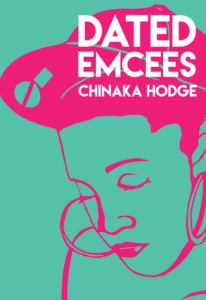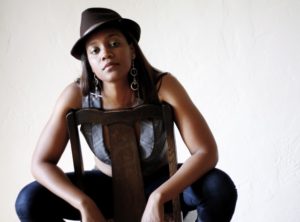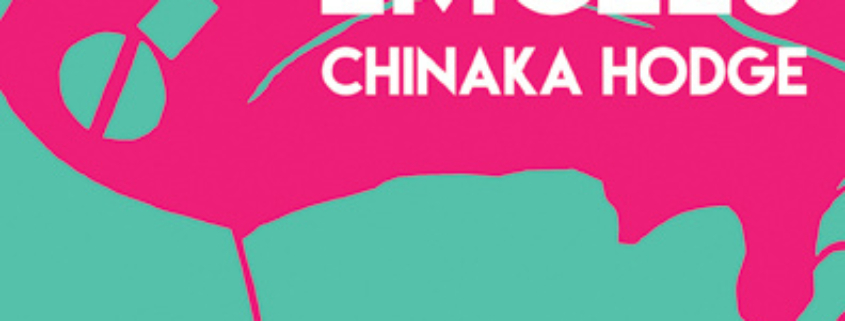Writers Read: Dated Emcees by Chinaka Hodge
 On the Friday following the deaths of Alton Sterling and Philando Castile, Chinaka Hodge performed selections from her newly released poetry book, Dated Emcees, at 826LA to benefit the literacy organization. With poems honoring Jordan Davis, references to Trayvon Martin and Oscar Grant, and tributes to Tupac and Biggie, Hodge has no shortage of words for black men whose lives were prematurely punctuated by bullets.
On the Friday following the deaths of Alton Sterling and Philando Castile, Chinaka Hodge performed selections from her newly released poetry book, Dated Emcees, at 826LA to benefit the literacy organization. With poems honoring Jordan Davis, references to Trayvon Martin and Oscar Grant, and tributes to Tupac and Biggie, Hodge has no shortage of words for black men whose lives were prematurely punctuated by bullets.
what about you’s small
no not legend, not stature
real talk just lifespan (12)
Equal parts liner notes and lyrics to the mixtape of the narrator’s love life, Dated Emcees serves as a little black book of sorts. As a lover, friend, peer, daughter, black woman, and citizen, Hodge’s narrator admits her questionable choices with a combination of pride, power, and wit that reverberates the spirit of hip hop. Flipping the pages, hip hop takes turns as subject, voice, lens. Hodge’s “small poems for Big: twenty-four haiku for each year he lived” and “2pac couplets: one line for each year he lived” eulogize today’s rap legends in old school poetic forms, simultaneously capturing the brevity of their lives while placing them in the continuum of the poetic tradition.
our sweetest thing, our prism and its light
lynched by bullet, won’t survive the knight (14)
Equal parts liner notes and lyrics to the mixtape of the narrator’s love life, Dated Emcees serves as a little black book of sorts.
“Drake questions the deceased, Vegas” (23-24) continues examining how the brevity of life cements one’s status as a cultural icon. We find Hodge’s Drake at the spot Tupac was shot in Las Vegas, summoning his spirit for an interview. The poem acknowledges the Canadian rapper’s roots, how he can “sing of danger but never face it” (23), a privilege of safety that many Americans are considering in the possibility of a Trump presidency. Offering a play-by-play of the final moments of Tupac’s life, the people and places that comprised his last memories, it’s not hard to imagine this séance as the inspiration for Drake’s actual lyrics repeated at the end of the poem, “oh my god/oh my god/if i die i’m a legend” (24).
Hodge’s narrator posits fame as “a hate crime against black men” (24), echoing sentiments in the penultimate couplets of her earlier Tupac tribute. In the ‘90s, the shootings of Big and Tupac reached national attention because of their existing celebrity. Today’s technology facilitates instafame with devices that are both means of media production and distribution; we know the names of Alton Sterling and Philando Castile because, in the same week, they were fatally shot by police officers and their deaths were recorded and shared virtually instantly. Fame, death, hate crime: decades apart, different order of operations in the same equation.
 Not all of Hodge’s characters are doomed to this fate. Granted, they aren’t all at that same high risk level of fame. Nevertheless, we can feel their own versions of systemic pain and violence through the pages of Dated Emcees. If there is any denial that black lives matter, Hodge’s writing can school those fools.
Not all of Hodge’s characters are doomed to this fate. Granted, they aren’t all at that same high risk level of fame. Nevertheless, we can feel their own versions of systemic pain and violence through the pages of Dated Emcees. If there is any denial that black lives matter, Hodge’s writing can school those fools.
Although the reading began with a moment of silence out of respect for the week’s casualties, Hodge’s voice, as she read and rapped her way through Dated Emcees, was a reminder to find strength and solidarity in the words we share, in how we choose to fill in the negative space.
Hodge, Chinaka. Dated Emcees. San Francisco: City Lights, 2016. Print.






